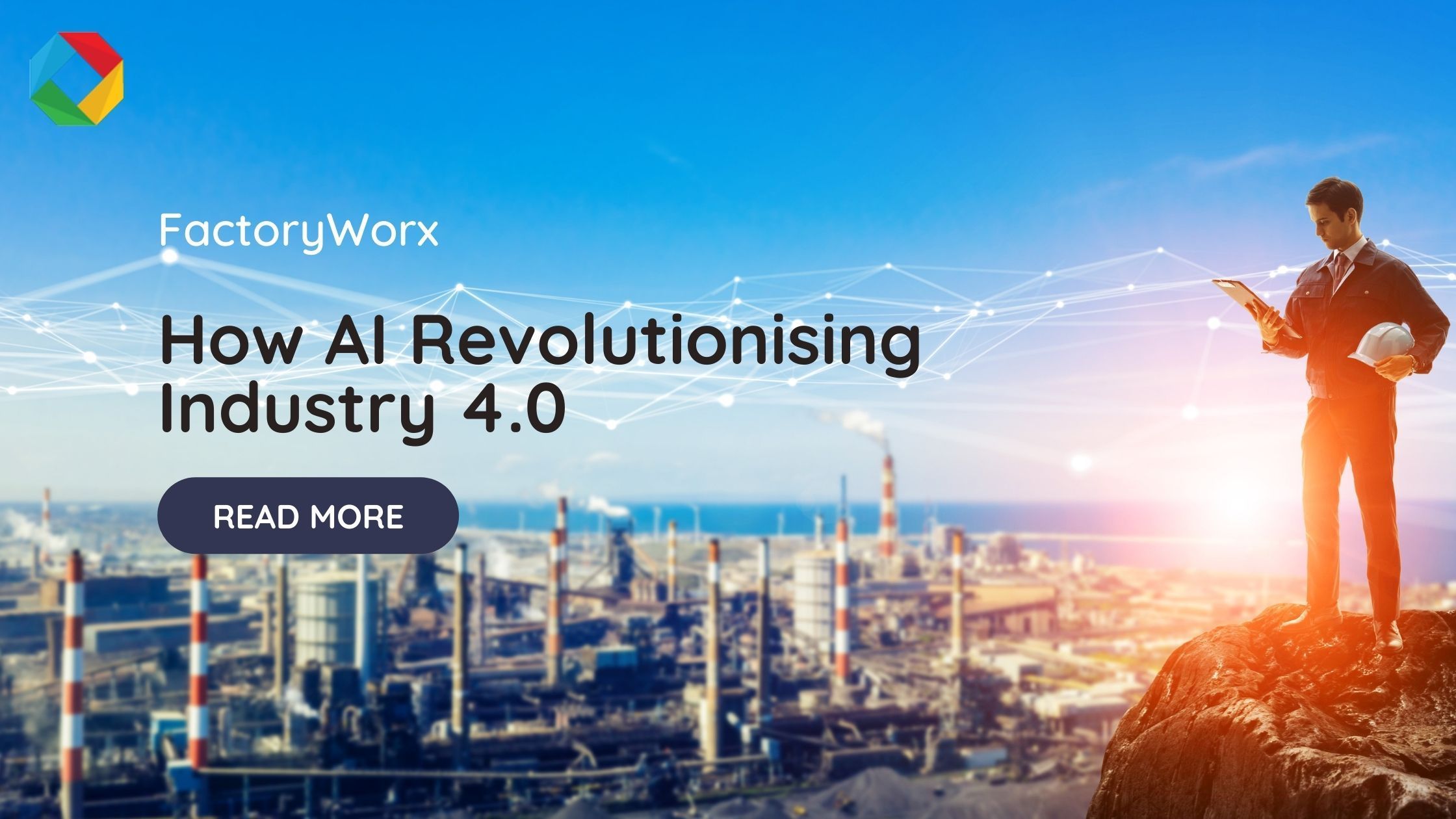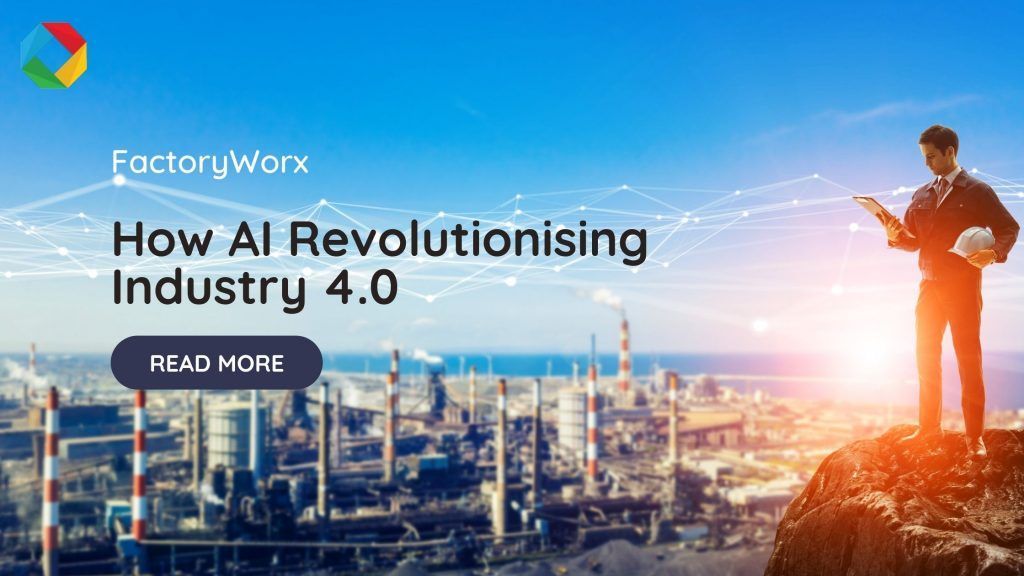
- July 20, 2022
- admin
- 0
Read Our Blog

How Artificial Intelligence is revolutionising Industry 4.0
The industrial revolution, which took place in recent years, was the biggest change the industrial sector has ever experienced. It includes all of the most cutting-edge technological developments of the present day, such as computer chips, smart linked gadgets, sensors, and autonomous vehicles. This transformation was caused due to the improvements in manufacturing technology, which has always welcomed new innovations. One of them is Artificial Intelligence in manufacturing industry 4.0.
Following is an outline that includes both these aspects of artificial intelligence within the Industry 4.0 paradigm and how manufacturers are already applying this effective technique to boost productivity, enhance quality, and better manage supply chains.
Why Do You Need AI Manufacturing?
The primary expense associated with manufacturing is the constant maintenance of machinery and plant infrastructure, which significantly impacts any organisation. Additionally, unplanned shutdowns cost the economy billions of dollars in lost production yearly.
Manufacturers are therefore utilising robust artificial intelligence-assisted predictive maintenance to reduce these expenses. Due to today's incredibly short market deadlines and the heavy load of products, manufacturers find it challenging to maintain excellent quality according to the established norms and laws.
Manufacturers can produce the highest product quality by using artificial intelligence in the manufacturing process. As robots replace millions of jobs, workers will be ready for increasingly complex jobs in programming, design, and maintenance. As robots enter the manufacturing floor alongside human labour during this periodic phase, human-robot integration is needed to be swift and secure and artificial intelligence is capable of achieving this need.
Impact of AI in manufacturing 4.0 technologies
Generative design
Artificial intelligence is also a tool that manufacturers can utilise during the design process. With a specified design brief as input, designers and engineers can use an AI algorithm, commonly known as generative design software, to explore all the potential configurations of a solution.
The brief may define and impose limitations on certain materials, manufacturing techniques, production times, and financial resources. Machine learning can then be used to test the set of solutions that the algorithm produces. The testing phase gives us more details about the concepts and development decisions that worked and the one which did not. This allows for more advancements until the best option is identified.
Market adaptation / Supply chain
The Industry 4.0 environment is entirely dominated by artificial intelligence, which extends beyond the factory floor. One illustration of this is using AI algorithms in industrial operations' supply chains to improve their ability to react and predict market changes.
An algorithm can consider demand patterns characterised by date, location, socioeconomic characteristics, macroeconomic behaviour, political situation, weather patterns, and more to construct estimations of market demand.
Manufacturers can utilise this information to manage staff, raw material consumption, energy use, and inventory control, as well as to make more informed financial decisions about the direction of the business.
Inventory Management
Inventory management is an essential use of AI in manufacturing. Better inventory management has the potential to unlock a great deal of wealth, and artificial intelligence is the key to that.
There are various ways that AI can lower inventory costs, from maximising what’s kept on hand to predicting gaps before they happen.
Once again, the reason AI is such a perfect fit for this application is its capacity to process enormous volumes of data and uncover the hidden patterns within.
Predictive Maintenance
A proactive maintenance method that uses AI to monitor an asset's health, status, and performance is called predictive maintenance. It enables manufacturers to schedule maintenance around their production schedule, reducing costly and unexpected breakdowns.
Machine Learning algorithms anticipate the errors that will happen on the production line, in a sense, ensuring that the problems are fixed before they happen.
The Design of a Factory 4.0
Artificial intelligence and machine learning are becoming more essential tools that enable you to automate and robotise manufacturing in more complex ways, reducing costs and raising the quality of the products in the market.
An illustration of manufacturing automation is collaborative robotics (the ability of industrial robots to work in collaboration with humans). Because new technologies like artificial intelligence were not yet available to enable problems to be solved through a network of sensors and software, this point presented a challenge in traditional applications.
It is crucial to learn from large organisations that have already advanced in this area, not only to ensure worker safety but also to reduce workload by enhancing employee physical and mental wellness. Any firm that wishes to embrace the fourth industrial revolution must first increase productivity. AI in the Industry 4.0 will also be able to carry out tasks that would otherwise be impossible.
FactoryWorx Artificial Intelligence (AI) Platform gives manufacturing and distribution businesses new opportunities for growth and innovation with unprecedented speed and accuracy throughout internal processes and the entire value chain.
Your company can use FactoryWorx AI to make smarter decisions to lower costs, boost productivity, and encourage innovation because it can gather valuable data from every machine or equipment on the factory floor, as well as from larger business systems and external sources.
Industry 4.0 Demands Collaboration
Manufacturers must work with experts to develop specialised solutions due to the complexity of using artificial intelligence in industrial automation. It is expensive to construct the necessary technology, and most firms lack internal expertise and understanding.
The following components/phases of an Industry 4.0 system must be configured to meet the requirements of the manufacturer:
- Gathering of historical data
- Sensors that capture real-time data
- Data aggregation
- Connectivity via communication protocols, routing and gateway devices
- Integration with PLCs
- Dashboards for analysis and monitoring
- Applications of AI using machine learning and other methods
AI is simply a more evolved version of automation, which is the unavoidable
outcome of the industry 4.0 transformation. It could help create new products and reduce manufacturing costs by raising quality.
One of the most significant benefits of artificial intelligence in manufacturing and industry 4.0 is its capacity to adjust to shifting trends and produce larger margins. Businesses that embraced AI early have outpaced their competitors and expanded quickly, primarily because of their greater capacity to predict and continuously adapt to new situations.

